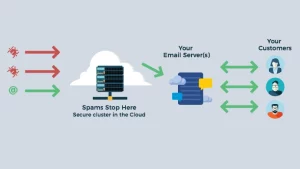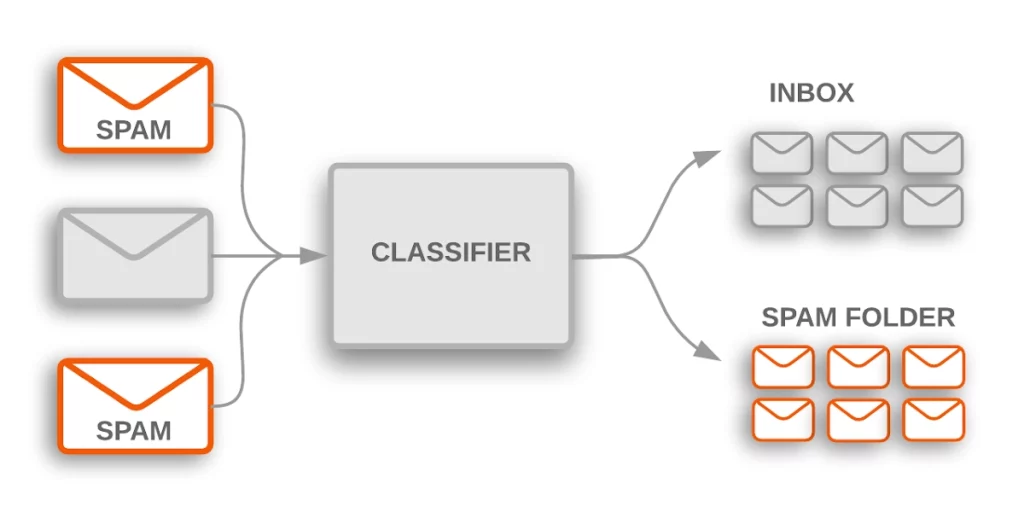The music industry has seen a significant shift towards digital platforms in recent years, with millions of people worldwide using streaming services to access their favorite songs. However, with this rise in digital consumption comes a growing concern for online security.
In particular, spam emails, including those with music-related content, have become a significant threat to music lovers, with spammers attempting to trick people into clicking on dangerous links or disclosing sensitive information. Therefore, it is crucial for music lovers to be aware of the risks associated with spam emails and to adopt effective measures to safeguard themselves against these threats, such as implementing a reliable spam email control solution. By utilizing a robust spam email control solution, music enthusiasts can better protect their online security and privacy, ensuring a safer and more enjoyable digital music experience.
This article aims to explore the impact of spam emails on the music industry and highlight the various ways spammers use music-related content to lure people into scams. We will also examine the risks associated with clicking on music-related spam emails and provide practical advice on how to protect yourself from these types of attacks.
By understanding the dangers of spam emails and taking preventative measures, music lovers can continue to enjoy the digital music landscape without fear of falling victim to malicious cyberattacks.
Key Takeaways
- Spam email is a significant threat to music lovers as spammers use music-related content to trick people into clicking on dangerous links or revealing sensitive information.
- Spamming of music fans with unsolicited emails has led to a decline in consumer trust, eroding the industry’s revenue streams.
- Clicking on suspicious links in music-related emails can lead to serious consequences such as identity theft or downloading malware disguised as music files.
- Music lovers need to be vigilant in protecting their data privacy and cybersecurity by using strong passwords, enabling two-factor authentication, verifying senders of emails, avoiding suspicious links, and only using reputable websites and platforms.
The Impact of Spam Email on the Music Industry
The proliferation of spam email has had a significant impact on the music industry, affecting revenue streams and online distribution channels.
Music piracy has been a longstanding issue within the industry, and spam email has only exacerbated the problem. With the rise of email marketing strategies, spammers can easily distribute links to illegal music downloads, making it difficult for legitimate music distributors to compete.
Moreover, the spamming of music fans with unsolicited emails has led to a decline in consumer trust, which has further eroded the industry’s revenue streams.
As such, it is important for music lovers to be aware of the negative impact of spam email on the industry and to support legitimate music distributors.

How Spammers Use Music-Related Content to Trick People
Fraudulent emails often utilize music-related content to deceive individuals into providing personal information or clicking on malicious links.
One common music-related spam tactic is the promotion of fake music events or concerts. These emails may offer tickets or VIP passes at discounted prices, but in reality, they are fake and the links provided in the email lead to phishing sites.
Another tactic is the use of fake music promotions, such as promises of free downloads or exclusive content. These emails may contain links to download malware disguised as music files, or may require individuals to enter personal information to access the promised content.
It is important for music lovers to be aware of these tactics and to always verify the legitimacy of music-related emails before clicking on any links or providing personal information.
Risks of Clicking on Music-Related Spam Emails
Clicking on suspicious links in music-related emails can lead to serious consequences such as identity theft or downloading malware disguised as music files. Email security is a crucial concern for music lovers as cyber threats are becoming increasingly sophisticated and deceptive.
Spammers use music-related content to trick people into clicking on links that may contain harmful viruses or lead to phishing sites. Music enthusiasts who are not careful in their email practices may unintentionally expose their personal information to criminals, compromising their financial security and privacy.
Therefore, it is essential for music lovers to be vigilant and cautious when interacting with music-related emails to avoid falling victim to cyber attacks.
Protecting Yourself from Music-Related Spam Emails
Vigilance is key to protecting oneself from potential cyber threats that may be disguised as music-related content in emails. In order to protect oneself from music-related spam emails, it is important to keep email security in mind.
This can be done by using strong and unique passwords, enabling two-factor authentication, and being wary of suspicious emails that ask for personal information or contain links or attachments. Phishing techniques are often used in spam emails, so it is important to verify the sender of an email before clicking on any links or downloading any attachments.
Additionally, it is important to keep software and anti-virus programs up-to-date and to avoid clicking on pop-up ads or suspicious links. By being vigilant and taking these precautions, music lovers can protect themselves from the potential risks associated with music-related spam emails.
Staying Safe While Enjoying Music Online
To navigate safely through the vast and diverse landscape of online music, listeners must be equipped with the necessary tools to discern between trustworthy sources and potentially harmful ones, like separating the wheat from the chaff.
Online scams and phishing attacks are increasingly common in the realm of music, as hackers seek to exploit music lovers’ passion and curiosity for their own nefarious purposes.
Listeners must be vigilant in protecting their data privacy and cybersecurity, ensuring that they only use reputable websites and platforms when listening to music online.
This includes being cautious about clicking on suspicious links or downloading unknown files, as well as regularly updating passwords and keeping anti-virus software up-to-date.
By taking these precautions, music lovers can enjoy their favorite tunes online without worrying about falling victim to online scams or having their personal information compromised.
Conclusion
Spam emails are a major concern for music lovers as they not only pose a risk to their personal data but also impact the music industry as a whole. Spammers use music-related content to trick people into clicking on malicious links, which can lead to the theft of sensitive information or the installation of harmful software on their devices.
It is essential to be aware of the risks associated with music-related spam emails and take necessary precautions to protect oneself from falling victim to such scams. Clicking on music-related spam emails can lead to several risks, including identity theft, financial fraud, and malware infections.
The music industry also suffers as spammers often use fake music-related promotions to sell counterfeit merchandise or distribute illegal copies of copyrighted content. To stay safe, music lovers should avoid clicking on suspicious links, verify the authenticity of any music-related emails they receive, and use reliable anti-virus software.
In conclusion, music lovers need to be vigilant about music-related spam emails and take necessary precautions to protect themselves from online threats. By staying informed and adopting safe browsing practices, music lovers can continue to enjoy their favorite tunes without falling victim to malicious online activities. Therefore, music enthusiasts must be mindful of the risks associated with spam emails and make informed decisions to safeguard their online presence.
You May Also Like:

